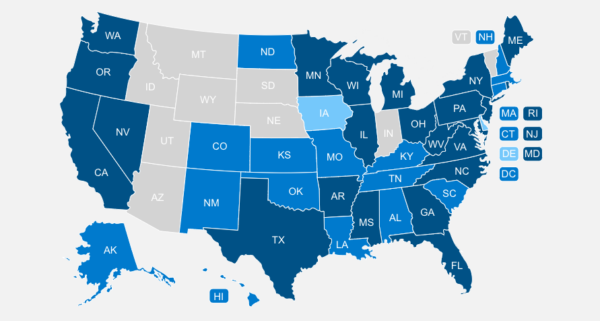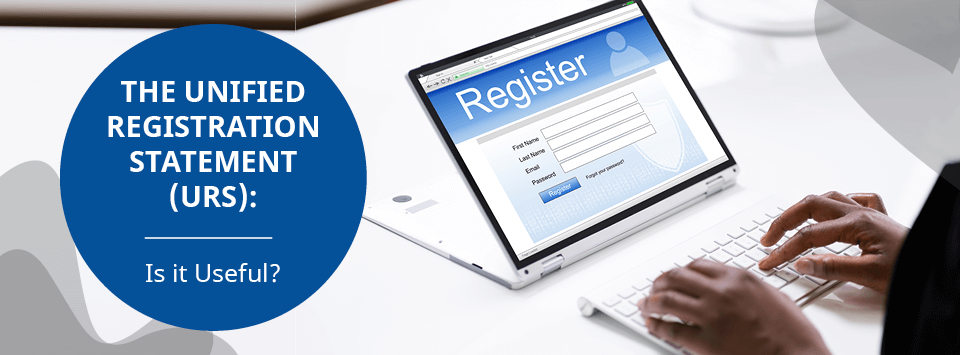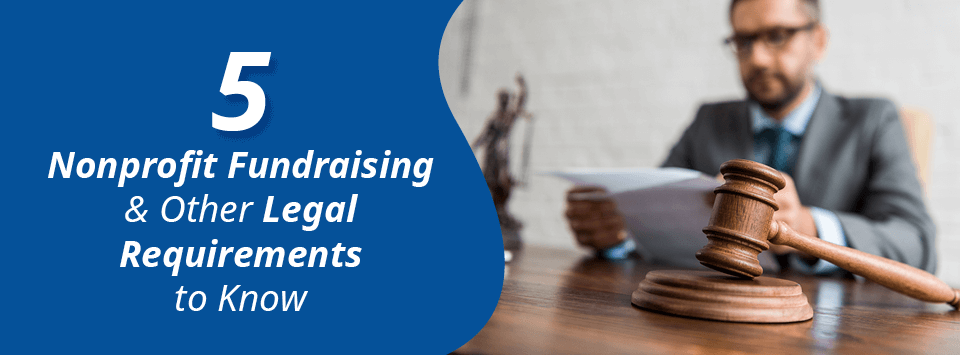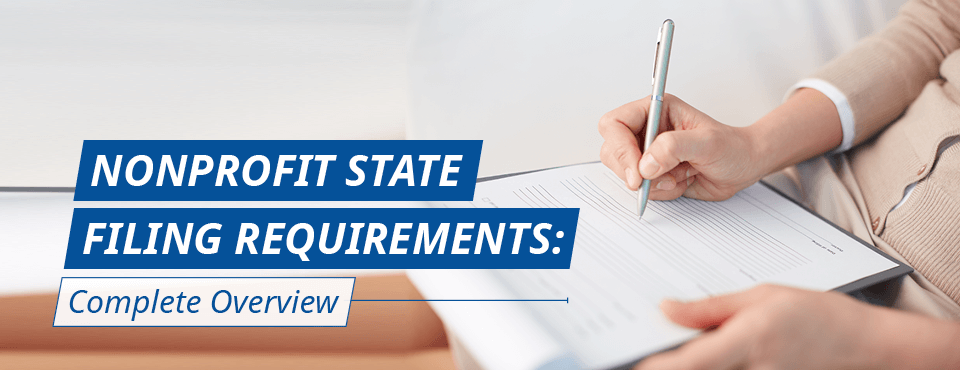
New Mexico and Mississippi Ease Audit Requirements
June 2, 2023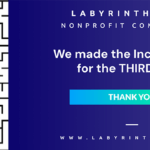
Labyrinth, Inc.: Recognized on the Inc. 5000 List
September 13, 2023Is Your Fundraising Partner Compliant? 3 Ways to Find Out

Is Your Fundraising Partner Compliant? 3 Ways to Find Out
Step 1: Assess Their Corporate Registrations
Nonprofits can use public secretary of state databases to verify where their partners and prospective partners are registered to do business and their status by following these steps:
- Visit the Secretary of State Website: Go to the official website of the Secretary of State for the relevant state where the for-profit fundraiser is based.
- Search for Business Entities: Look for the section or tool on the website that allows you to search for business entities or corporations.
- Enter Business Name or ID: Enter the for-profit fundraiser's full legal name or unique identifier (such as an entity or registration number).
- Review Registration Information: The search results will display information about the business, including its legal name, registration status, address, and registration date.
- Check for Good Standing: Ensure the for-profit fundraiser is in good standing and isn't behind on any filings.
- Verify Authorization to Conduct Business: If the for-profit fundraiser operates in multiple states, nonprofits should check if it is authorized to conduct business in their specific state.
Note: Labyrinth, Inc. clients receive access to our Entity Manager module, which is directly integrated with secretary of state offices nationwide. Contact us for help verifying the good standing of your current or potential fundraising partner.
Step 2: Review Their Fundraising Registrations
Nonprofits considering partnering with a for-profit fundraiser can use public charitable authority databases to verify the registration of their prospective partner to engage in or advise on fundraising campaigns. Generally, the process involves visiting the official website of the relevant charitable authority or regulatory body overseeing charitable organizations in the state where the for-profit fundraiser operates. From there, the nonprofit can search for the partner by name to ensure it's meeting the state's solicitation registration filing obligations.
The registration requirements for for-profit fundraisers depend on the services they provide and the nature of the engagement, and they will vary from state to state. The lists below outline the states where various for-profit fundraisers must generally register. This is a list of registration requirements only. Additional requirements like surety bonding, contract submittals, solicitation disclosures, and financial reports may also exist.
Professional fundraising firms are companies that provide specialized services to raise funds for nonprofits. They are generally directly involved in asking for donations and may have custody of the funds for some time. Services provided by professional fundraising firms may include in-person solicitation, direct mail and marketing, and telemarketing.
It's important to note that professional fundraising firms are typically for-profit entities. Nonprofits hire them on a contractual basis and may charge fees or a percentage of the funds raised as compensation for their services. Nonprofits often engage professional fundraising firms to augment their internal fundraising capabilities or to bring specialized expertise to specific campaigns or initiatives.
States where professional fundraising firms must register include:
- Alabama, Alaska, Arkansas, California, Colorado, Connecticut, Florida, Georgia, Hawaii, Illinois, Indiana, Iowa, Kansas, Kentucky, Louisiana, Maine, Maryland, Massachusetts, Michigan, Minnesota, Mississippi, Missouri, New Hampshire, New Jersey, New Mexico, New York, North Carolina, North Dakota, Ohio, Oklahoma, Oregon, Pennsylvania, Rhode Island, South Carolina, South Dakota, Tennessee, Texas, Utah, Vermont, Virginia, Washington, West Virginia, and Wisconsin
Individual Solicitors
Known alternately as solicitor agents or individual professional solicitors, these individuals are employed by professional fundraising firms to raise funds on behalf of client nonprofits. In certain states, they are regulated differently than firms providing the same services.
States where individual solicitors must register include:
- Alabama, Arkansas, Florida, Georgia, Illinois, Kansas, Kentucky, Michigan, Mississippi, Missouri, New Jersey, New York, Oklahoma, Rhode Island, and South Carolina
A fundraising counsel is a company that provides specialized services to help nonprofits and charitable organizations raise funds. Nonprofits hire these firms to assist with various aspects of their fundraising efforts. Services provided by fundraising counsel may include campaign planning and strategy, donor research and targeting, and event planning.
States where fundraising counsel must register include:
- Alabama, Arkansas, California, Florida, Hawaii, Illinois, Indiana, Kansas, Kentucky, Maryland, Massachusetts, Michigan, Minnesota, Mississippi, New Hampshire, New Jersey, New York, North Carolina, North Dakota, Pennsylvania, Rhode Island, South Carolina, Utah, Virginia, and West Virginia
(Note that although Colorado, Connecticut, Ohio, and Wisconsin use the term "fundraising counsel" on their registration applications, the requirements apply only to firms with access to the contributions raised. Therefore, despite the name, the regulations more closely resemble professional solicitor registration requirements.)
A commercial co-venture, often abbreviated as CCV, is a type of business arrangement in which a for-profit company collaborates with a nonprofit organization to conduct a charitable fundraising campaign or promotion. Both parties raise funds for a specific charitable cause or project in this partnership. The for-profit business (the commercial partner) typically promotes the campaign through marketing channels, such as advertising, social media, or in-store displays. This could involve a range of activities, from direct sales of products to special events.
Though nonprofit fundraising generally is not the commercial partner's main business, they are still required to register before engaging in such a partnership. Registration requirements exist in the following states:
- Alabama, California, Massachusetts, Mississippi, South Carolina
Step 3: Check Their Credentials and Accreditation
When choosing a fundraising partner, verifying their credentials and accreditation is crucial. Look for certifications like the Association of Fundraising Professionals (AFP) or memberships in professional organizations like the National Association of Charitable Gift Planners (NACGP). These affiliations demonstrate that your fundraising partner is committed to ethical practices and continuous professional development. Accreditation from reputable organizations assures that they meet industry standards.
Making Informed Choices for Compliant Fundraising Partnerships
Choosing a fundraising partner is a crucial decision for any nonprofit. By taking these three simple steps, you can make informed choices that align with your organization's values and mission. By partnering with a compliant fundraising partner, you ensure that your fundraising efforts contribute to the greater good while preserving your organization's good name. So, be diligent in your evaluation process and find a partner that shares your commitment to compliance, transparency, and success.
We offer fully managed services to register both nonprofits and their for-profit partners for fundraising. No matter what side of the campaign you’re on, we’re here to help. Whether you’re a nonprofit considering engaging a for-profit fundraising partner, a professional fundraising firm, a fundraising counsel, or a for-profit business running a cause marketing campaign, Labyrinth, Inc. can help you navigate the registration and renewal process. Contact us today to learn more!
